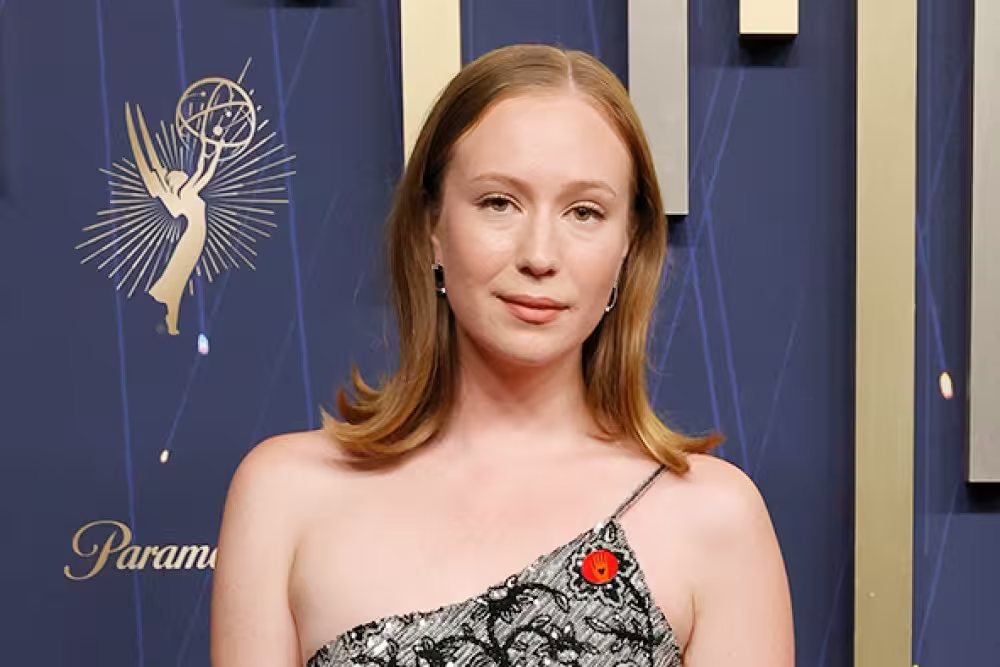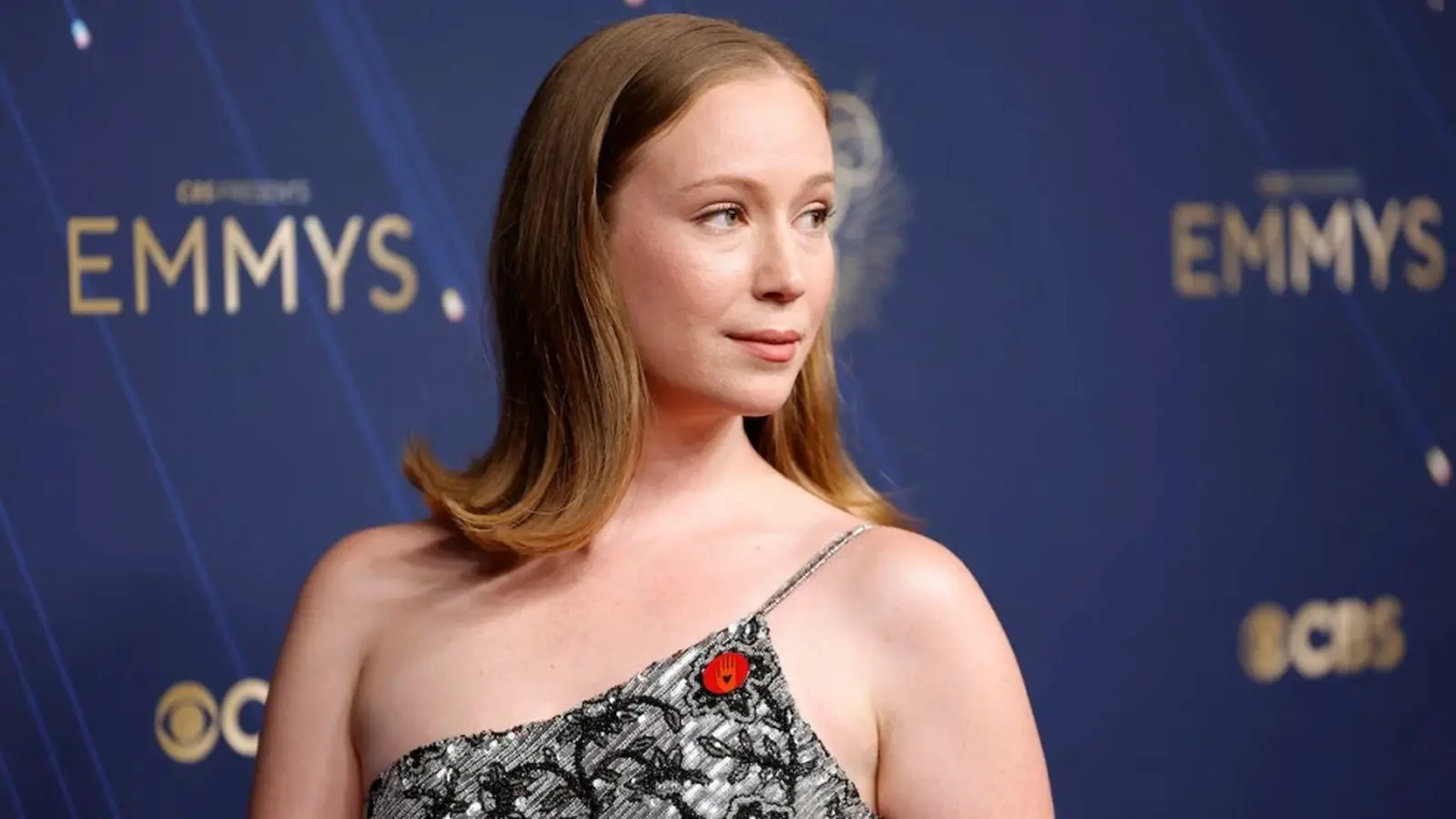10 Minutes
An Emmy Acceptance That Became a Conversation
On the red carpet and under the Emmy lights, Hannah Einbinder’s acceptance for Best Supporting Actress in a Comedy was supposed to be a career milestone — and it was. But the closing line of her speech, a bleeped declaration of “F— ICE” and “Free Palestine,” turned that milestone into a wider cultural moment. Backstage later, beside Hacks co-star Jean Smart, Einbinder explained the intention behind the words and the convictions that led her to sign a recent pledge to boycott certain Israeli film institutions along with over 1,200 other film professionals.
Einbinder’s remarks were more than a headline-grabbing soundbite. They reflect a growing pattern in which TV creators, actors, and other cultural figures use awards stages and press moments to frame urgent political questions. For fans of Hacks and observers of the TV industry alike, the exchange raised immediate questions about the role of artists in modern political debate and the responsibility that accompanies visibility.
Hannah Einbinder: From Ava Daniels to Activist Voice
Hannah Einbinder’s Emmy win marks her fourth nomination and her first victory, after being recognized each season for her work as Ava Daniels on Hacks. The show itself — nominated for 14 Emmys including Outstanding Comedy Series — is widely praised for its sharp writing and the mentor-protégé dynamic between Jean Smart’s Deborah Vance and Einbinder’s Ava. Einbinder’s performance blends ferocity and vulnerability in a way that has resonated with both critics and viewers, making her a natural figure to command attention on a national stage.
But the image of the actor receiving an award and reading a short, bleeped political slogan is not new — it’s only grown more visible in the streaming era, when awards nights are global moments and social media amplifies every phrase. Einbinder used that spotlight to call attention to the humanitarian crisis in Gaza and to emphasize a distinction she sees as essential: the separation of Jewish identity and culture from the political actions of the State of Israel.
Why She Spoke: Friends on the Frontlines and a Personal Obligation
Backstage, Einbinder told reporters she has friends in Gaza who are frontline workers — doctors and educators providing care and building classrooms in refugee camps — and she called it an issue "very dear to my heart." She said, “It is my obligation as a Jewish person to distinguish Jews from the State of Israel,” framing her activism in terms of moral responsibility rooted in her own cultural identity.

Her decision to sign the film workers’ boycott, she explained, focuses on institutions rather than individuals. "The film workers for Palestine boycott does not boycott individuals; it only boycotts institutions that are directly complicit in the genocide," she said, adding that boycotts are a nonviolent tool to apply pressure on power structures.
Context: Boycotts, Industry Pressure, and the Long View
Boycotts as a strategy have a long history in cultural politics. The global cultural boycott of apartheid South Africa is often cited as a precedent: artists and institutions refused engagement to isolate and delegitimize an oppressive regime. Contemporary movements like the Boycott, Divestment, Sanctions (BDS) campaign against Israel have adopted some of the same tactics, and debate within the entertainment industry is intense.
Hacks’ success and Einbinder’s rising star make her involvement particularly visible. Artists who sign such pledges risk professional and public pushback, but they also shift the terms of conversation around film festivals, co-productions, funding pipelines, and awards. For many creatives, a pledge to avoid specific state-affiliated institutions is both a symbolic stance and a tactical effort to change institutional behavior.
How Hollywood Has Responded to Political Statements Before
This isn’t the first time Hollywood has wrestled with political statements at high-profile events. Historic moments include Marlon Brando declining his Oscar in 1973 to protest the treatment of Native Americans, and more recent instances where actors and filmmakers have used acceptance speeches to call attention to social causes. Each moment sparks an immediate debate: is the awards platform a political soapbox or a place to celebrate craft? Einbinder’s speech revives that question for a generation shaped by streaming, social media, and transnational conflicts.
Comparisons and Industry Trends
Several parallels help situate Einbinder’s actions. Artist-activists from different eras and contexts illustrate how the industry evolves when politics and art intersect:
- Marlon Brando’s Oscar refusal is a classic example of leveraging awards notoriety to highlight an ignored injustice. While Brando’s intervention targeted domestic policy and indigenous rights, the structure of the action — using the spotlight to prioritize moral issues — is comparable.
- The international cultural boycott of apartheid South Africa shows how industry-level coordination can be sustained over decades and impact diplomatic and economic conversations.
- Contemporary activists in Hollywood — from artists who publicly support climate initiatives to those backing MeToo-era reforms — demonstrate a growing willingness among entertainment professionals to treat their platform as civic capital.
From a TV production standpoint, Hacks itself sits in a trend of smart, character-driven comedies that combine biting satire with heartfelt drama. Fans often compare Hacks’ mentor-protégé structure to shows like The Marvelous Mrs. Maisel (for its female-dominated creative energy) and even to workplace comedies that blend personal stakes with industry critique. Where Hacks differs is in its unflinching look at careerism, aging, and the costs of reinvention — themes that mirror the seriousness of Einbinder’s political engagement.
Fan Reaction, Social Media, and the Risk-Reward Calculus
Once Einbinder’s words circulated online, reactions split. Supporters praised her willingness to speak truth to power and commended her attempt to distinguish her Jewish identity from state policy. Critics accused her of oversimplifying a complex geopolitical issue or of weaponizing an awards moment for politics. For many fans of Hacks, the comment added a new layer to the show’s cultural footprint; for others it became a reason to debate whether entertainment spaces should be politicized.
The calculus for actors is complicated. Bold statements can alienate parts of an audience but can also deepen loyalty among viewers who value artists with convictions. For streaming services and networks, the stakes concern reputational risk, audience retention, and, crucially, relationships with international partners and festivals.
Insights from a Cinema Expert
"When an actor like Hannah Einbinder takes a political stand at a major awards ceremony, it cracks open the idea that performers are only entertainers. It’s a reminder that television can be both a cultural mirror and a political actor," says film critic Anna Kovacs. "That said, the long-term effect depends on how institutions respond — will festivals and studios rethink partnerships, or will they reaffirm a separation between art and policy?"
Behind the Scenes: Hacks, Performance, and Production Notes
Hacks has become emblematic of a modern streaming-era comedy that rewards nuanced performances and sharp writing. Jean Smart’s Deborah Vance remains a lodestar in the series, and her own Emmy win that night added to the show’s legacy. Production-wise, Hacks is credited with revitalizing character-driven comedy on streaming platforms, showing that serialized short seasons can blend critical acclaim with awards recognition.
Trivia for superfans: Einbinder has been nominated each season in the same category, a sign of consistent recognition from peers and voters. The show’s 14 Emmy nominations on the night underline its broad appeal across writing, acting, and technical categories.
Critical Perspectives: What This Means for the Future of TV
Einbinder’s comments — and the pledge she signed — raise several industry questions. Will studios and streamers adopt policies on political engagement by their talent? Will awards bodies revisit their rules on acceptance speech content? Will international co-productions and festival calendars be affected if cultural boycotts expand?
There is also the human dimension: many industry professionals see personal safety and career impacts as real risks when taking controversial public stands. At the same time, younger creatives increasingly expect their work and public profiles to align with political values.
Concluding Thoughts: Art, Accountability, and the Embrace of Complexity
Hannah Einbinder’s Emmy speech and her backstage explanations are emblematic of a broader moment in which entertainment, identity, and global politics intersect in visible and sometimes uncomfortable ways. Her insistence on distinguishing Jewish identity from the policy actions of a state invites nuanced conversation, even from those who disagree with her tactics. For the television industry, the episode underscores that awards nights are no longer narrow celebrations of craft; they are multi-directional platforms where culture, politics, and commerce collide.
Whether Einbinder’s stance will reshape industry practices or simply become one of many notable awards moments remains to be seen. What is already clear is that actors, writers, and directors are increasingly seen as participants in public life — not only for the stories they tell onscreen, but for the stances they take off it. For viewers and industry watchers, the conversation Einbinder sparked is less about a single slogan and more about how the arts navigate moral responsibility in an interconnected world.
In short: Einbinder’s Emmy moment belongs to a long lineage of artists who have used visibility to press for change. The long tail of impact — festival decisions, studio policies, and the texture of public debate — will unfold in the months and years ahead, and the industry will be watching.
Source: deadline


Leave a Comment